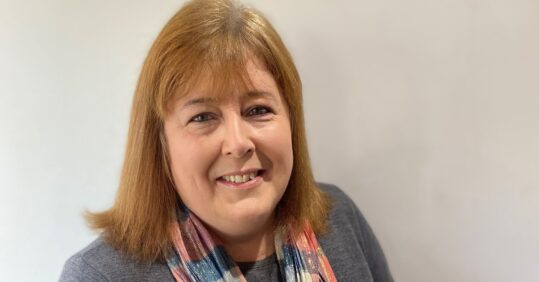Warning over ‘substitution’ of GPNs with nursing associates

General practice nurses (GPNs) are increasingly being substituted with nursing associates in a move which is ‘devaluing’ the profession and their skills, the Royal College of Nursing’s (RCN) professional lead for primary care has told.
In an exclusive interview with Nursing in Practice, Heather Randle said the college was ‘seeing a lot of role substitution’ since the introduction of the Additional Roles Reimbursement Scheme (ARRS) – namely with nursing associates and care coordinators being used in place of GPNs.
Launched in 2019, the ARRS programme allows primary care networks to claim reimbursement for the salaries of some multidisciplinary roles into practices. While the scheme covers nursing associates and advanced nurse practitioners, it does not include GPNs.
Since the scheme began, Ms Randle said nursing associates had increasingly been used in place of GPNs, noting that they were a ‘cheaper alternative’.
Related Article: New preceptorship package for social care nurses
And while she stressed that nursing associates ‘have a role’ in general practice, she added: ‘We need to be making sure they aren’t replacing the general practice nurse.’
Ms Randle said the issue was among the biggest challenges currently facing GPNs and that it was ‘devaluing them as the skilled workforce they are’.
‘Nursing associates have their role, but they don’t look at the whole person, that is not what they are trained to do,’ she added.
‘They are not trained to do that autonomous assessing. They are trained to complete those tasks that are in front of them.’
Ms Randle suggested there was too much focus on ‘task orientation’ in practices instead of using the skills of a GPNs who build relationships with their patients and look at wider issues.
Having worked in general practice for 30 years, Ms Randle said some of the ‘most important conversations I’ve ever had with patients have been chance conversations, because there’s a relationship there’.
Related Article: Applications to study nursing in England at ‘new low’
‘The lady that’s walking out the door and says to me “I’ve had this funny thing on my breast for a couple of weeks, could you have a look”,’ she said.
However, Ms Randle warned that practices were moving away from this and towards ‘”you need to do this many blood pressures today” or “let’s go back to task orientation, instead of using that skill”’, she added.
Meanwhile, more than half of GPNs informing a survey by the Queen’s Nursing Institute (QNI) said they had not been able to give more holistic care since ARRS roles were implemented while a majority said their workload had not decreased.
Related Article: Paul Rees appointed as permanent NMC chief executive and registrar
In a recent interview with Nursing in Practice, QNI chief executive Dr Crystal Oldman warned of the additional workload faced by GPNs since the ARRS scheme, noting that they were developing training and induction programmes for staff coming in and were also being required to supervise those in post, but without recognition or benefit.
GPNs were also recently left outraged following a report by the Care Quality Commission that appeared to suggest that there was ‘less need’ for registered nurses in primary care and that those in post could be replaced by nursing associates. This was later refuted by the healthcare watchdog which said the wording in its report had been misunderstood.

See how our symptom tool can help you make better sense of patient presentations
Click here to search a symptom




